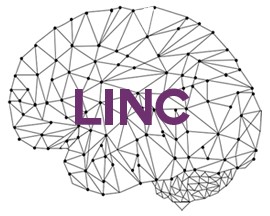Musical training affects the development of different cognitive functions. This can be receptive (auditory perception of musical stimuli) or active (produce music through musical instruments or their voice). The aim of this study was to evaluate the effect of 12 weeks of receptive or active musical training on language and visuospatial ability for preschool children. They were randomly split into three groups: receptive or active musical training or a control group (without training). Language and visuospatial ability were evaluated through WPPSI-III (Information, Vocabulary, Word Reasoning, Receptive Vocabulary, Block Design, Object Assembly) and ENI (Language Repetition, Stick Construction, Copying a Complex Figure). Visuospatial ability and language-dependent measures were examined using a univariate analysis of variance (ANOVA). Significant differences were found between groups in the performance of the linguistic tasks. Children with musical training obtained better results than those of the control group in the majority of the subtests. In the visuospatial tasks, significant differences were found between the groups in Object Assembly here the musically trained children obtained higher scores than the control group. The results showed that the 12-week musical training could have the ability to improve the performance of the children of 4 and 5 years of age on language tasks and raises questions about its effect on other cognitive functions, such as visuospatial ability.
P#61
Musical training affects language in 4- and 5- year-old children
María Angélica Benítez
- San Martín,
- Argentina
- María Angélica Benítez ¹
- , Verónika Diaz Abrahan ²
- , Favio Shifres ³
- , Nadia Justel ²
- 1 Laboratorio Interdisciplinario de Neurociencia Cognitiva (LINC), Centro de Estudios Multidisciplinario en Sistemas Complejos y Ciencias del Cerebro (CEMSC3), Instituto de Ciencias Físicas (ICIFI), Escuela de Ciencia y Tecnología (ECyT), Universidad de San Martín (UNSAM). Consejo Nacional de Investigaciones Científicas y Técnicas (CONICET). Universidad Nacional de Córdoba (UNC).
- 2 Laboratorio Interdisciplinario de Neurociencia Cognitiva (LINC), Centro de Estudios Multidisciplinario en Sistemas Complejos y Ciencias del Cerebro (CEMSC3), Instituto de Ciencias Físicas (ICIFI), Escuela de Ciencia y Tecnología (ECyT), Universidad de San Martín (UNSAM). Consejo Nacional de Investigaciones Científicas y Técnicas (CONICET).
- 3 Laboratorio para el Estudio de la Experiencia Musical (LEEM). Departamento de Música. Facultad de Bellas Artes (FBA). Universidad Nacional de La Plata (UNLP)

